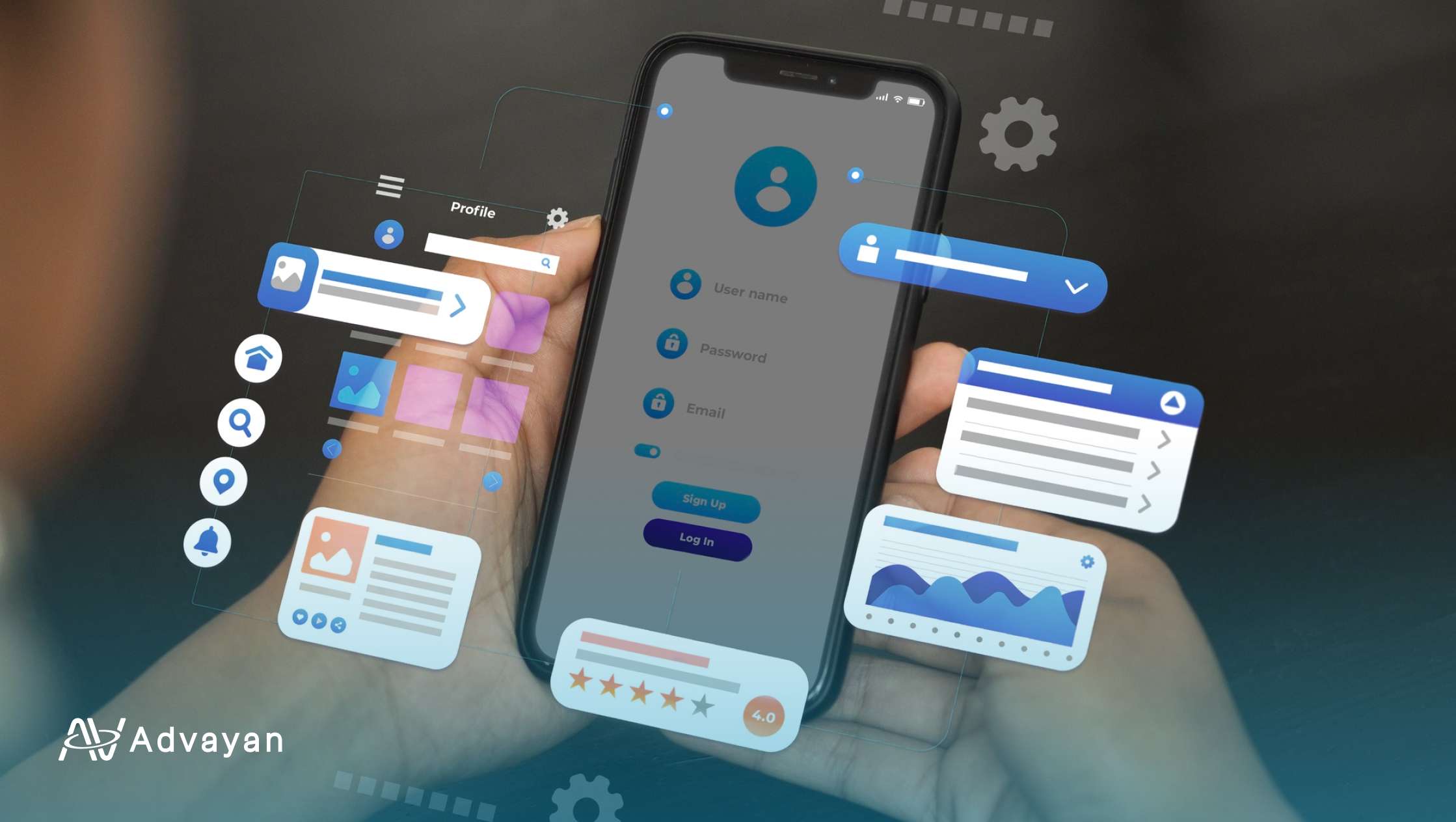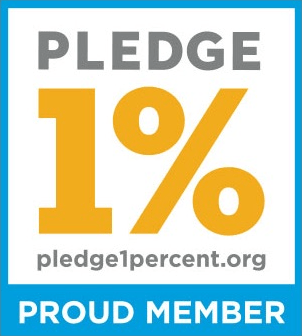
- iOS App Development
Building an iOS App Development from the Ground Up: What You Need to Know
Every journey needs a starting point, from which the venture of excellence begins. Determining a starting point is quintessential if you imagine building an iOS app development like a marathon track. This blog serves as a blueprint that, at Advayan, we want to use to assist you in making an iOS development app from scratch. With each step and move, we will guide you through constructing an app that attracts, engages, and fulfills customers’ demands!
Here, you can find the entire ‘complex’ procedure diligently broken down for easy understanding, enabling you to comprehend every aspect. From conceptualization to deployment, this blog unravels the key considerations, best practices, and indispensable insights that ensure a solid foundation for your iOS app.
Read along to embark on your iOS app development journey!
iOS App Development journey: where innovation meets practicality!
Table of Content
- What does “iOS App Development” mean?
- Why Use the iOS Platform for Your Mobile App Development?
- Types of iOS App Development
- What Language is Used for iOS App Development?
- iOS App Development Tools You Need to Know to Develop Top-notch iOS Apps
- Factors to Consider Before Starting to Develop iOS Applications
- How to Build iOS Apps for Business?
- Conclusion
What Does “iOS App Development” Mean?
iOS App Development is the creation of applications for Apple’s iOS operating system, which powers Apple devices like iPhones, iPads, and iPod Touch. Developers use programming languages like Swift or Objective-C to build apps that make the most of Apple devices’ unique features.
In the app development lifecycle, iOS developers play a vital role. They design, code, test, and optimize apps to meet user needs and expectations. The iOS development ecosystem offers essential tools and resources, including the Xcode Integrated Development Environment (IDE) and Apple’s Software Development Kit (SDK), making creating high-quality and engaging iOS applications easier.
Why Use the iOS Platform for your Mobile App Development?
Choosing the right platform for your mobile app is a critical decision, and the iOS platform stands out for various compelling reasons. Here’s why opting for the iOS platform can be effective in various ways:
1. Apple Users Generally Possess a Greater Purchasing Capacity: The iOS user base is renowned for its higher purchasing power, making it an ideal market for revenue generation.
2. Loyal Users: Apple users are known for their brand loyalty, fostering a user base that is more likely to engage with and stick to your app over time.
3. Performance: iOS devices are optimized for performance, ensuring that your app runs smoothly and efficiently, providing an enhanced user experience.
4. Powerful Platform: Leveraging the advanced capabilities of iOS devices allows developers to create feature-rich and high-performance applications.
5. Data Security: iOS is acclaimed for its robust security features, instilling confidence in users regarding protecting their sensitive data.
6. ROI (Return on Investment): The lucrative iOS market often results in a higher return on investment for developers, making it a financially rewarding platform.
7. Great App Reliability: The strict App Store guidelines contribute to the reliability and quality assurance of iOS apps, enhancing their overall performance.
8. Innovative OS Updates: iOS regularly introduces innovative and cutting-edge updates, providing developers with the latest tools and technologies to enhance app functionalities.
9. The More Extensive User Base in the Overall World: With a widespread global user base, iOS offers a broader audience reach, opening up opportunities for app success worldwide.
Types of iOS App Development
There are primarily three types of iOS app development. The following are the three primary categories:
1. Native Apps:
Our apps are crafted exclusively for iOS, making the most of Apple’s hardware and software capabilities. Native apps excel in performance, offer a smooth user experience, and access device-specific features. In our blog, we’ll explore the details of native app development, helping you unlock iOS’s potential to build solid and user-friendly applications.
2. Hybrid Apps:
Hybrid apps bridge the gap between native and web apps by combining elements. Developed using web technologies like HTML, CSS, and JavaScript, they are wrapped in a native container, enabling distribution through app stores. Our exploration highlights the pros and cons of hybrid app development, empowering you to make informed decisions based on your project requirements.
3. Web Apps:
Web apps are accessed through a web browser, even without installation on the device. They offer a flexible solution for delivering content and services across various platforms. In our blog, we’ll explore the advantages and considerations of web app development, providing insights on when and why this approach could suit your iOS app project.
What Language is Used for iOS App Development?
Here are the languages used for iOS app development, take a look:
1. Swift: Undoubtedly, Swift takes center stage as the preferred language for iOS app development. Swift has become the go-to language for building high-performance iOS applications because of its speed, safety features, and expressiveness.
2. Objective-C: While Swift has gained prominence, Objective-C, the original language for iOS development, still plays a role. Developers may encounter Objective-C code, especially in projects with extended histories.
3. HTML5: Although primarily associated with web development, HTML5 finds its place in iOS app development for creating responsive and visually appealing user interfaces.
4. C#: While commonly associated with Windows development, C# is not the native language for iOS but can be used with frameworks like Xamarin for cross-platform app development.
5. Flutter: Although not a language but a framework, Flutter deserves mention for its role in iOS development. It uses Dart as its programming language, enabling developers to create visually consistent experiences across iOS and other platforms.
iOS App Development Tools you Need to Know to Develop Top-notch iOS Apps
Choosing the right tools is paramount to success in the ever-evolving landscape of iOS app development. As part of our series on “Building an iOS App Development from the Ground Up: What You Need to Know,” let’s explore essential tools that can elevate your app development journey.
1. App Code: Streamline your coding experience with App Code, a robust integrated development environment (IDE) that enhances code navigation, analysis, and refactoring. Its powerful features empower developers to write clean and efficient code, laying a solid foundation for your iOS app.
2. Alcatraz: Unleash the potential of Xcode with Alcatraz, a package manager that simplifies the installation of plugins and extensions. Customize your Xcode environment effortlessly, enhancing productivity and tailoring the development process to your needs.
3. Cocoapods: Simplify dependency management by integrating Cocoapods into your iOS projects. This open-source dependency manager facilitates the inclusion of third-party libraries, saving time and ensuring project scalability.
4. Mockingbird: Expedite the prototyping phase with Mockingbird, a powerful wireframing tool. Create interactive app prototypes swiftly, allowing you to visualize and iterate on your design ideas before diving into the development phase.
Factors to Consider Before Starting to Develop iOS Applications
Read ahead the key factors that can significantly impact the success of your venture. Here are essential considerations for building iOS applications:
1. Know your Purpose:
Clearly define the purpose and goals of your iOS application. Whether solving a specific problem, providing entertainment, or enhancing user productivity, a well-defined purpose is the guiding light throughout the development journey. Ensure that your app aligns with a compelling and user-centric purpose.
2. Define the Target Audience and Perform Market Research:
Understand your target audience to tailor the app to their needs and preferences. Conduct thorough market research to identify existing competitors, market trends, and potential gaps. This knowledge empowers you to create a unique and competitive iOS app that resonates with your intended user base.
3. Devise your Next Plan of Action:
Once you have a clear purpose and understanding of your audience, devise a comprehensive action plan. Outline the development roadmap, set achievable milestones, and establish a timeline. A well-thought-out plan streamlines the development process, helping you stay organized and focused on achieving your app development goals.
How to Build iOS Apps for Business?
Embarking on iOS app development for your business is a strategic move that demands a meticulous approach. In this “Building an iOS App Development from the Ground Up” segment, we unravel the comprehensive process of crafting iOS apps tailored for business success.
Research
The foundation of a successful iOS app lies in thorough research. Explore your target audience, market trends, and competitor landscape to inform critical decisions throughout development.
Compliance with Apple Specifications
To ensure your app meets Apple’s stringent standards, meticulous attention to Apple’s guidelines and specifications is crucial. This step is vital for seamless integration into the Apple ecosystem and optimal user experience.
Designing
Crafting an engaging and intuitive user interface is paramount. Delve into the intricacies of UI/UX design, ensuring your app aligns with your brand and provides a seamless experience for users.
Development
The coding phase is the backbone of app creation. Navigate through the development process, utilizing Swift and Xcode to translate your design into a fully functional iOS application.
Testing
Rigorous testing is imperative to identify and rectify bugs or glitches. Employ various testing methodologies to guarantee a smooth and error-free user experience.
Deployment
The final step involves launching your iOS app on the App Store. Follow Apple’s submission guidelines, and celebrate the culmination of your hard work as your app becomes accessible to a global audience.
Conclusion
This guide is our effort to offer you a valuable resource for your journey into the app creation world. From the initial idea to the details of coding and deployment, we cover essential aspects for successful iOS app development. The Advayan community is here to support you with insights, best practices, and tips to overcome challenges.
Stay curious, stay innovative, and continue pushing the boundaries of what your apps can achieve.









